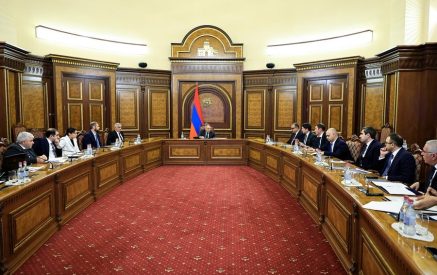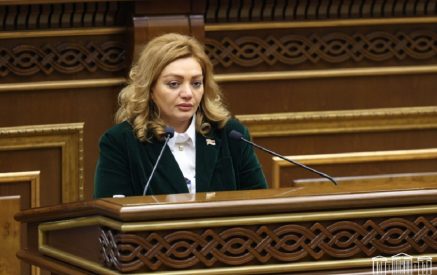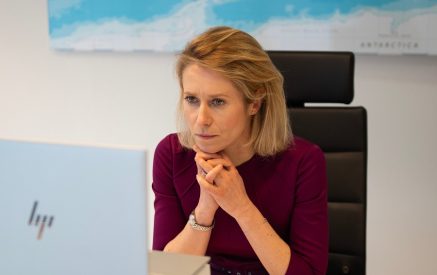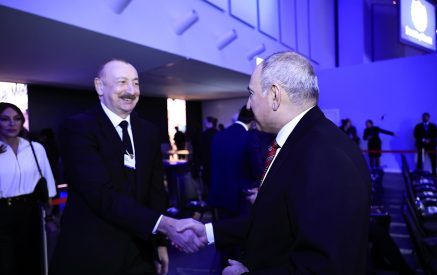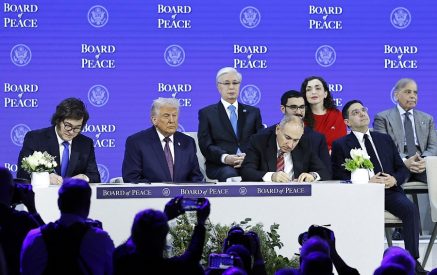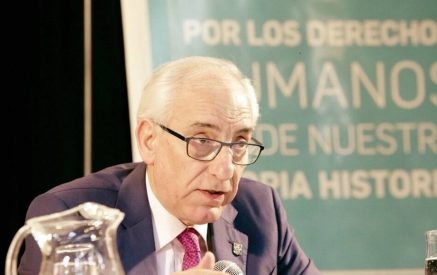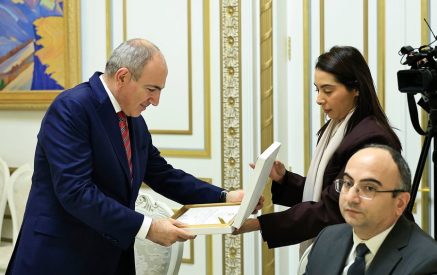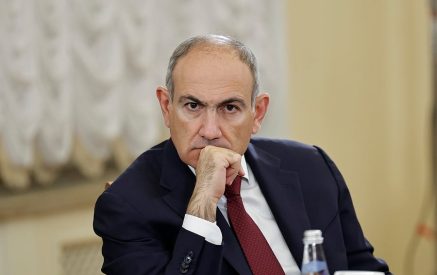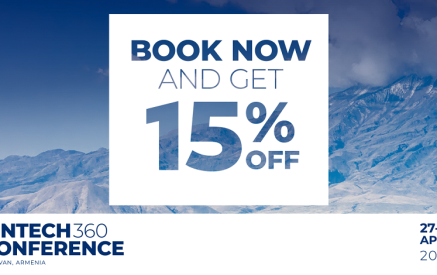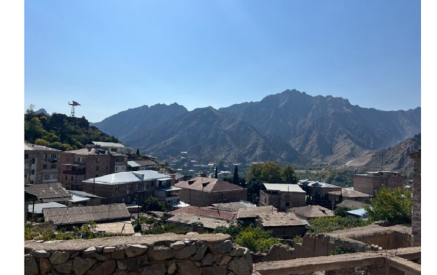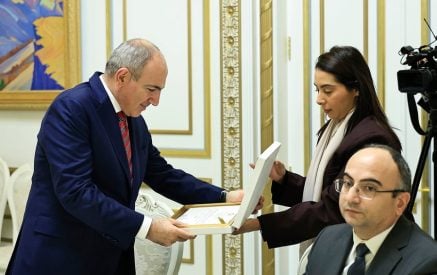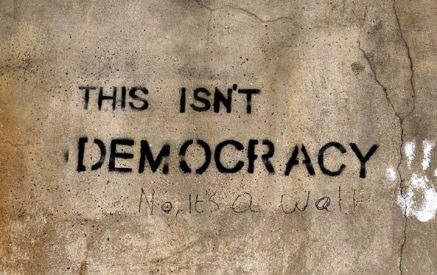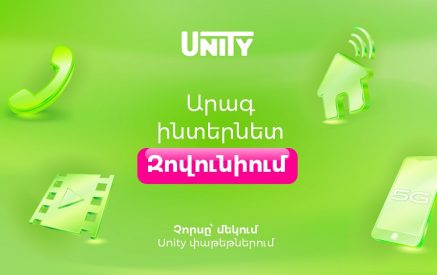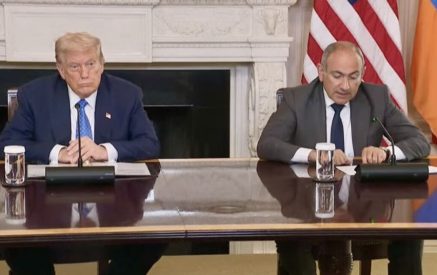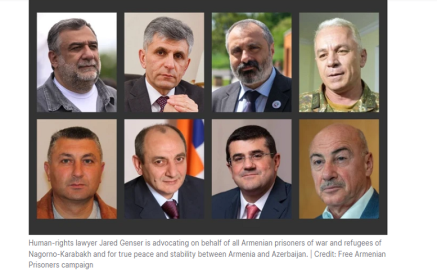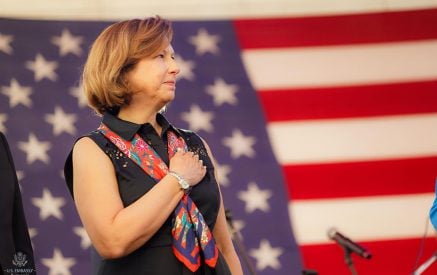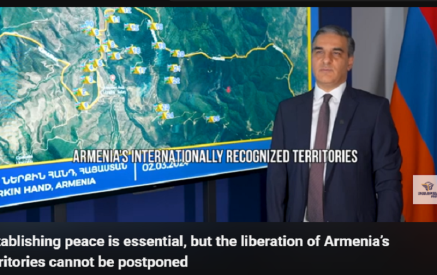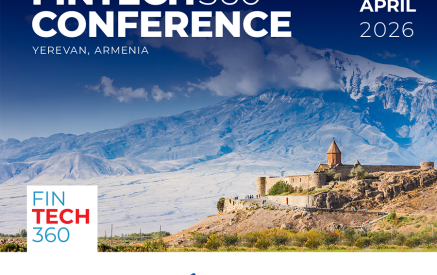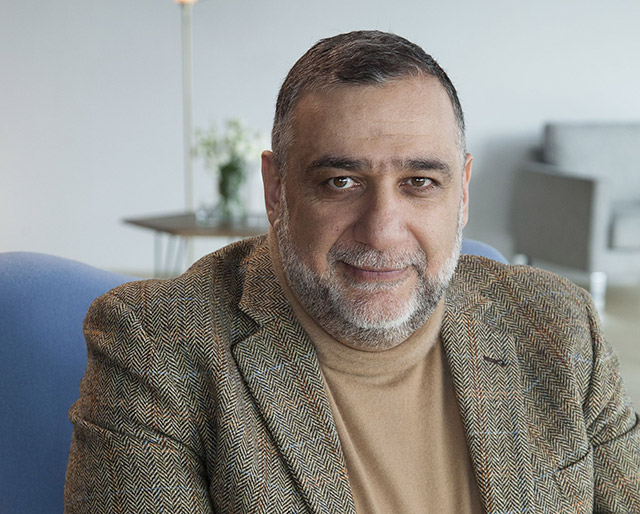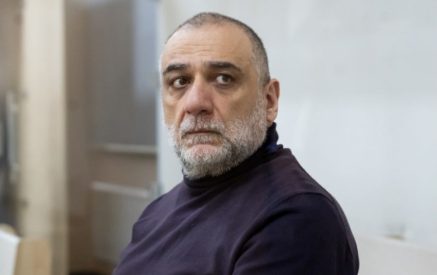Ruben Vardanyan, evolutionary visionary, Co-founder of the Aurora Humanitarian Initiative, UWC Dilijan, FAST, International School of Leadership and Professional Development “Matena” and other projects.
Part 8
Read the beginning here
- How are we going to solve the Artsakh issue, build relations with Azerbaijan, and ensure our security?
After the victory in the 1994 War of Independence of Artsakh, Armenia’s stance nevertheless remained uncertain: on the one hand, it did not conduct full-scale military operations; on the other hand, armed clashes took place along its borders, and the toll of both military and civilian casualties kept growing. Throughout this time, attacks from Azerbaijan, including the 2016 four-day war, were testing its breaking point. Having beefed up, united with a strong ally, and using the opened window of opportunity, Azerbaijan dragged us into a 44-day war in Artsakh, where we suffered a severe loss of life, and Artsakh was deprived of a significant part of its territories.
Read also
On the morning of September 27, 2020, I happened to land in Yerevan, and from there, I went to Artsakh, thus witnessing the early stage of the war. I saw the dedication and commitment of people going into battle for their homeland, and the general emotional upsurge in the first days of combat. At the same time, the disorganization visibly reigned supreme. There was no clear plan of action, and we were ill-equipped for war, either militarily or among the civilian population.

It is vital to extend the stay of the Russian peacekeepers in Artsakh for a longer period and to formalize its mandate in detail.
Photo credit: Photolure News Agency ©
Today, we are still in a limbo state of neither war nor peace, and this uncertainty prevents us from deciding in which direction we should move on, how to build relations with a neighbor who has gained a territorial advantage and is profiteering on this. Sure enough, many of us rightly fear a resumption of armed conflict in the near future, so it is necessary, as soon as possible, not only to analyze the mistakes that handed us the defeat but also to arrive at the right conclusions and make profound changes both in the army and in society as a whole.
We are faced with a number of difficult tasks: we need to overcome the grave consequences of the war, restore the broken economy, transform our security system both in terms of military and economic power, so that it provides us with full-fledged protection for decades to come, resolve border issues, rebuild destroyed transport communications and infrastructure, help the families of the dead and wounded, and return prisoners of war and refugees home. Finally, we need to enlist the support of allies in this strategically important region (Iran may be one of them; in addition, we should develop partnerships with India and China), making the further manifestation of aggression toward us as costly as possible, if not unreal.
On top of that, we must be seeking a peaceful solution to the Artsakh issue, however difficult it may be. But a peace agreement does not mean the establishment of peace on any terms. Negotiations should be conducted not between the defeated and the victor, weak and strong opponents, but between two equally strong parties who can agree on the basis of understanding the benefits of peace for both of them.
The task of the Armenian elite is to extend the stay of the Russian peacekeepers in Artsakh for a longer period and to work out a solution to the Artsakh issue within the framework of the OSCE Minsk Group based on the principles of respect for the right of the people of Artsakh to self-determination.
Of course, getting stronger takes time and billions of dollars in investment to make up for the losses incurred, rebuild and modernize the army, and train career officers in the shortest possible time. We need “smart” money and intellectual resources intended for the development of science and technology, the establishment of defense contractor companies, a technological cluster that enables the development and testing in artificial intelligence (including by Russian companies), and improved production in this area. Fortunately, we have young talented scientists, founders of successful startups, who can use their expertise and knowledge to contribute to the development of the science and technology industry.
We must build a robust economy that will not allow Azerbaijan and Turkey to unleash a new war against Armenia. To do this, we need a strong partner who will provide us with a sense of security and the ability to focus on making a developmental breakthrough. Although Russia is evidently such a partner for us, we need to forge relations with other countries. A partnership involves a bilateral agreement. We cannot demand protection from influential powers or expect them to help us out of pure altruism. This is a process of mutual exchange, so before we understand who our allies are, we need to know what we have and what we can offer them.
Today, Russian peacekeepers play a key role in creating the so-called security belt of Nagorno-Karabakh and, more importantly, in preserving Artsakh as a territory where Armenians have been living and will live. In my opinion, the most important task facing the Armenian elite is to unite and make every effort to extend the stay of the Russian peacekeeping mission in Artsakh for a longer period, spell out and formalize its mandate in detail, and achieve a solution to the Artsakh issue within the framework of the OSCE Minsk Group based on the principles of respect for the Artsakh people’s right to self-determination and realizing that this issue transcends the interests of individual states and concerns the future of the entire South Caucasus.
- How will our relations with Russia be built?
The reality is that the Russian Federation is the main strategic partner and one of the main creditors of Armenia, the most important export market for our goods and services, as well as the labor market that attracts migrants from our country. Russia is Armenia’s leading foreign policy and military and strategic partner, besides being our arms supplier. The Russian armed forces guarding our borders guarantee our territorial integrity.

Everything that happens in Armenia is projected into both the foreign and domestic policies of Russia.
Photo credit: Photolure News Agency ©
We need to build such a model of relations with Russia, within whose framework Armenia, as it fulfills its partner obligations, will receive the opportunity for economic development, while maintaining its identity and international positioning, whatever its status may be: an independent sovereign state, a member state of the Eurasian Economic Union, or a member of the Union State. Regardless of the chosen format, relations between Armenia and Russia should be based on complete trust and the principles of mutually beneficial cooperation. Otherwise, Armenia risks becoming a satellite of Russia, a country with a small population and a significant presence of the Russian military bases, which will make it even more dependent on Russia and vulnerable both economically and socially.
A weak Armenia is extremely disadvantageous for Russia. Instead, it needs a strong and prosperous Armenia.
However, a weak Armenia is extremely disadvantageous for Russia as a partner constantly relying on the help of a stronger one. A weakened Armenia becomes a target for manipulation by forces, which are unfriendly to Russia but which promise more substantial aid. In order for Russia to be able to maintain its role as an integrator of the South Caucasian countries into a single socioeconomic space, it needs a different kind of Armenia—not a sparsely populated capsule state, which exists mainly courtesy of the sponsor state, but a strong strategic partner.
Despite being an independent state for 30 years, Armenia still cannot be considered part of the outer perimeter of Russia’s sphere of influence. Over the past three decades, the socioeconomic relationship between Armenia and Russia has become multifaceted. This manifests in the constant flow of labor resources between the two countries, in one of the largest Armenian communities being based in Russia, maintaining ties with its homeland, and in the representation of Armenians in the Russian elite circles. Everything that happens in the Armenian economy, politics, and social sphere is inevitably represented in the corresponding spheres of life in Russia. Therefore, it is apparent that everything that happens in Armenia is projected into both the foreign and domestic policies of Russia. That is why, I reiterate, a weak Armenia is dangerous for Russia—it needs a strong and prosperous Armenia.
- How are we preparing for the potentially open borders with Turkey?
Since the border with Turkey was closed almost 30 years ago, we have grown accustomed to the lack of economic and cultural ties with our neighbor, and many are quite happy with the way things are. Opening the border still seems unlikely today. Nevertheless, we should be gearing up for this scenario, and the responsibility of the elite is to work out a detailed plan in case the border is opened, so that this happens on conditions acceptable to Armenians living in Armenia, as well as in other countries of the world. In this regard, a number of factors need to be addressed.
First, the gap between the Turkish and Armenian economies has narrowed significantly. Whereas in 1993 the GDP per capita in Turkey was ten times that of Armenia, today, it is only twice as high: $8,538.2 versus $4,267.5.[i] Second, the population (mainly Kurdish and Hamshen) of practically all Turkish provinces bordering on Armenia is poorer than the population of Armenia. Third, over the decades, both economies have managed to adapt to the negative impact of the closure of the border and the blocking of major routes, and today, the Turkish economy has practically no impact whatsoever on the Armenian economy, which means that Turkey has no opportunity to influence the situation in our country.
Obviously, the opening of the border will boost the economic development of both countries through the free movement of goods, capital, and people. Many Armenians, who still live in Turkey, for example, Hamshen, will finally have the opportunity to visit Armenia, which will undoubtedly bolster cultural exchange between Armenian sub-ethnic groups and their gradual reconciliation. Significantly higher tourist flows will stimulate wealth growth in the poorest border regions, which, on the one hand, will strengthen their ties with Armenia, and on the other, will keep loosening their economic and political dependence on Turkey.
It all boils down to two options: do nothing, fearing the arrival of the Turks in Armenia, or be proactive to fully prepare for the opening of the border.
Openness, however, not only creates new opportunities, but poses new challenges, mainly directed at regional security due to the emergence of a new channel for the transfer of terrorists to South Caucasus. An obvious and immediate ramification of the open borders will be the overflow of Turkish products on the Armenian market. And even today, with closed borders, these are readily available in the country thanks to supplies through intermediary countries like Georgia and Iran. Certainly, the opening of the borders will jeopardize Armenian agriculture, as it is significantly smaller to the corresponding sector of the Turkish economy. In addition, the requirements for the competitiveness of the local population will soar, as will the risks of transferring key Armenian assets under the control of Turkish investors and entrepreneurs with large capital. Finally, opening the border will be a real stress test for our identity, which is already heavily influenced by Turkish and Arab culture, particularly music. The measures needed to maintain the Armenian language and culture will be discussed later.
When mulling the conditions on which our relations with Turkey will be built, we should detach emotions, no matter how strong the pain from the tragedy we experienced in the past and no matter how righteous the indignation toward those who caused us irreparable harm and suffering, and instead be guided by common sense, sober pragmatism, and a clear understanding of our own interests. We need to take into account all the emerging challenges, work out in advance the rules and procedures governing the exchange of goods and migration between the two countries, temporary or permanent residence of Turkish citizens on the territory of Armenia and vice versa, spell out legal issues related to business, property, and taxation for foreigners, deliberate on the conditions of access to Turkish ports, and much more. Of particular importance is ensuring the protection of the interests of the Armenians in Artsakh in the event the Turkish border is opened. With that in mind, the interests of Armenia in Artsakh should by no means be sacrificed.
Today, two options are available to us. The first is to do nothing, passively expecting and fearing the arrival of the Turks in Armenia. The second is to be proactive and act coherently in order to fully prepare for the opening of the border. My partners and I, as well as like-minded individuals, favor the second one. One of our initiatives in this direction will be the creation of a $1 billion fund to invest in the development of the territories of historical Western Armenia. In fact, this all-important endeavor requires a much larger amount of money. That said, it must certainly be part of a general large-scale and ambitious development plan for Armenia, the Armenian world, and Artsakh, which, among other things, will include the creation of a state-of-the-art security system, and will cost $15–20 billion in investment money over the next five to ten years.
The creation of the fund is a project that has more to do with our worldview. The lands in question are the ancestral home of millions of diasporan Armenians, the descendants of those who fled from the Genocide in the Ottoman Empire. We do not want to put up with the “abomination of desolation in the holy place,” as St. Matthew says, and we consider it important to restore our presence on the land of our forefathers and to revive our culture and traditions there.

The Armenians have left a colossal heritage all over the world that we must preserve. The photo shows the ruins of Ani.
Photo credit: Internet resource
Let me stress once again that we are talking about the development of not only Armenia but also the Armenian world as a whole. We should remember not only about the heritage that has been accumulated in Armenia for millennia, but also about what the Armenians have left all over the world: in Jerusalem, Venice, Paris, Vienna, and Tbilisi, as well as in Syria, Poland, Singapore, and many other places.
Now is too early to talk about specific details. Yet one thing is clear: whether the borders will open in five, ten, or fifteen years, we should be preparing for this in advance. I understand that such a project will not be of interest to everyone, but I am sure that there will be people who will appreciate its importance, huddle around this idea, and will be ready to invest more money, time, and effort to implement it. Above all, we need to agree on a common vision for the development of these territories, to compile a database of what needs to be restored and what kind of business is worth developing there, to form an expert task force—in other words, to understand where we are now, where we want to go, what we lack, and what we already have.
Summing up the above, I would comment that we need an in-depth and impartial analysis of the strengths and weaknesses of our neighbor, and we need to adopt their art of government of a state, which is to ensure the effective functioning of this institution, regardless of who holds the power.
[i] World Bank data: GDP per capita (current USD) — Armenia, 2020; GDP per capita (current USD) — Turkey, 2020. URL: https://data.worldbank.org/indicator/NY.GDP.PCAP.CD?locations=AM (date accessed: 10/11/2021).
To be continued



